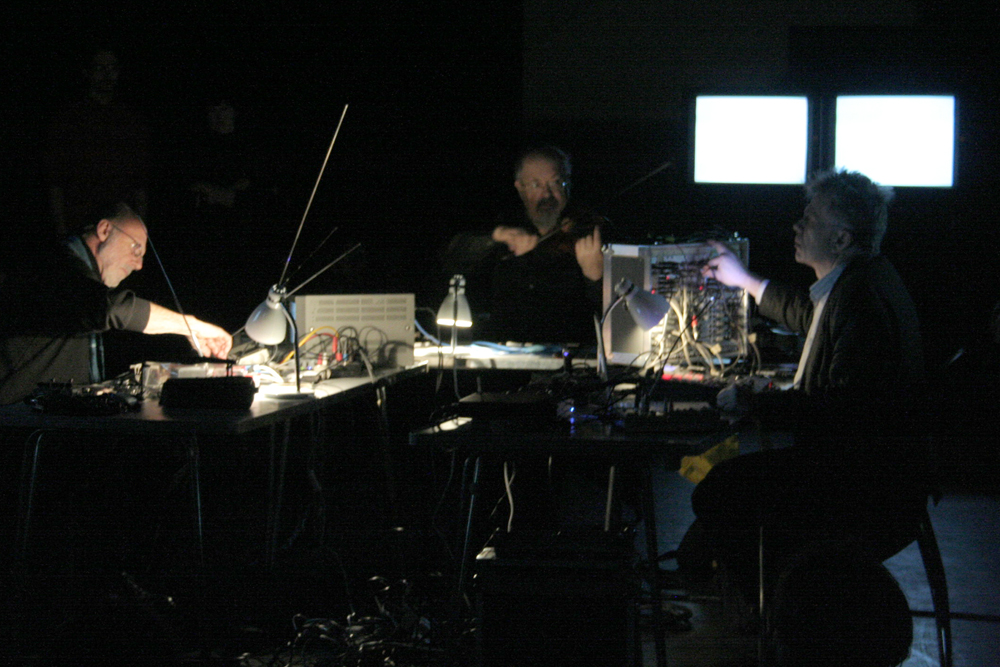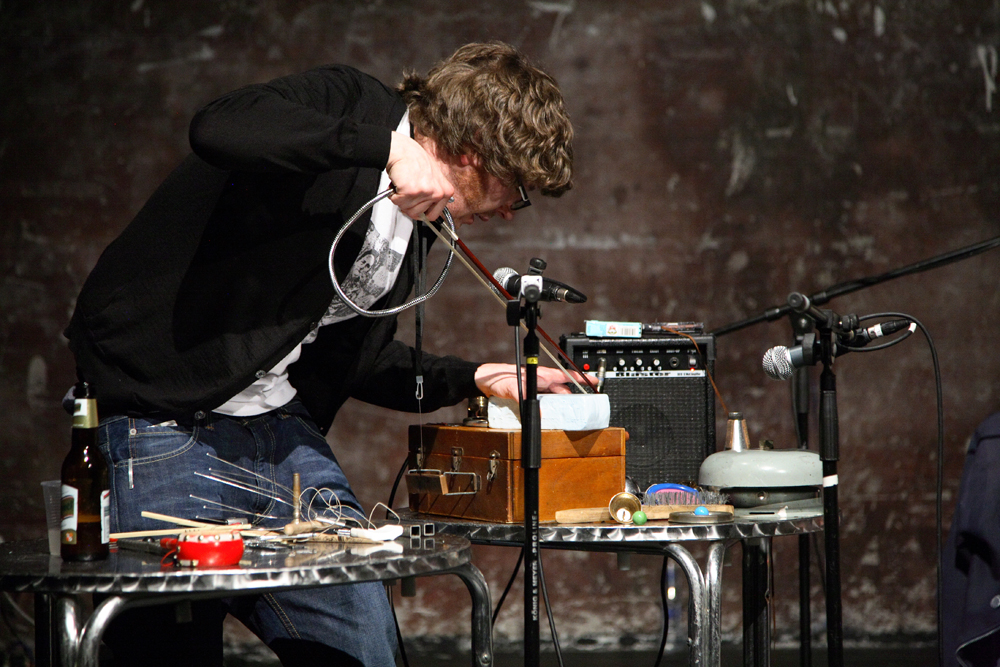
The View From Nowhere Part 1
Ray Brassier Thomas Metzinger
Ray and Thomas talking about how cognitive neuroscience is unlocking the physical basis of personal experience.
Arika have been creating events since 2001. The Archive is space to share the documentation of our work, over 600 events from the past 20 years. Browse the archive by event, artists and collections, explore using theme pairs, or use the index for a comprehensive overview.

Ray and Thomas talking about how cognitive neuroscience is unlocking the physical basis of personal experience.

A celebration of the release of four books written by members of, and focused on about the House and Ballroom scene.

The second edition of the INSTAL festival broadened it’s scope to include performances from Francisco Lopez, Phil Niblock, Stefan Mathieu, Alva Noto, Ryoji Ikeda and John Wall.

Usurper jamming live in a skip at the site of Bud’s Neill’s Lobey Dosser statue on Woodlands Road.

Three short performances involving social exchange (jumpers, hats, glasses…) and singing (ballads)

Join Scot-PEP, SWARM and Decrim Now for a day of panel discussions focusing on: sex worker’s labour rights, how decriminalisation can help in the struggle for sex worker safety, sex work & migration with a film screening of Crossings.

A double bill of Morgan Fisher films that ask what can be achieved by a simple structural method of commenting on scraps of 35mm film, re-shot on 16mm film and what happens to meaning (if anything) when ‘insert shots’ are relieved of their original duty of providing crucial plot development for a variety of other movies?

An immersive environment where sound is looped through oscillators, radio, guitar pick-ups and video amps to create dense strobing images and colours

Dead Labour Process drool-tape farmer, squeaking/creaking Usurper brother and Peeesseye’s yodelling traps-man hold a real OUT splutter party.

The Echo project is an installation as audio guide for a crowd. And at the same time it’s a private conversation: with you, as one of 20 people in a room, a sort of public intimacy.

Glasgow based artist Defaalt invites the audience to collaborate fully in his performance by means of a generative graphical interface.

Shutter Interface is an expanded cinema piece: a series of machinegun bursts of chromatic relationships and visual harmonics in an overwhelming montage